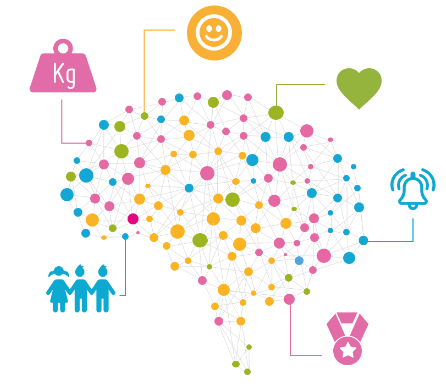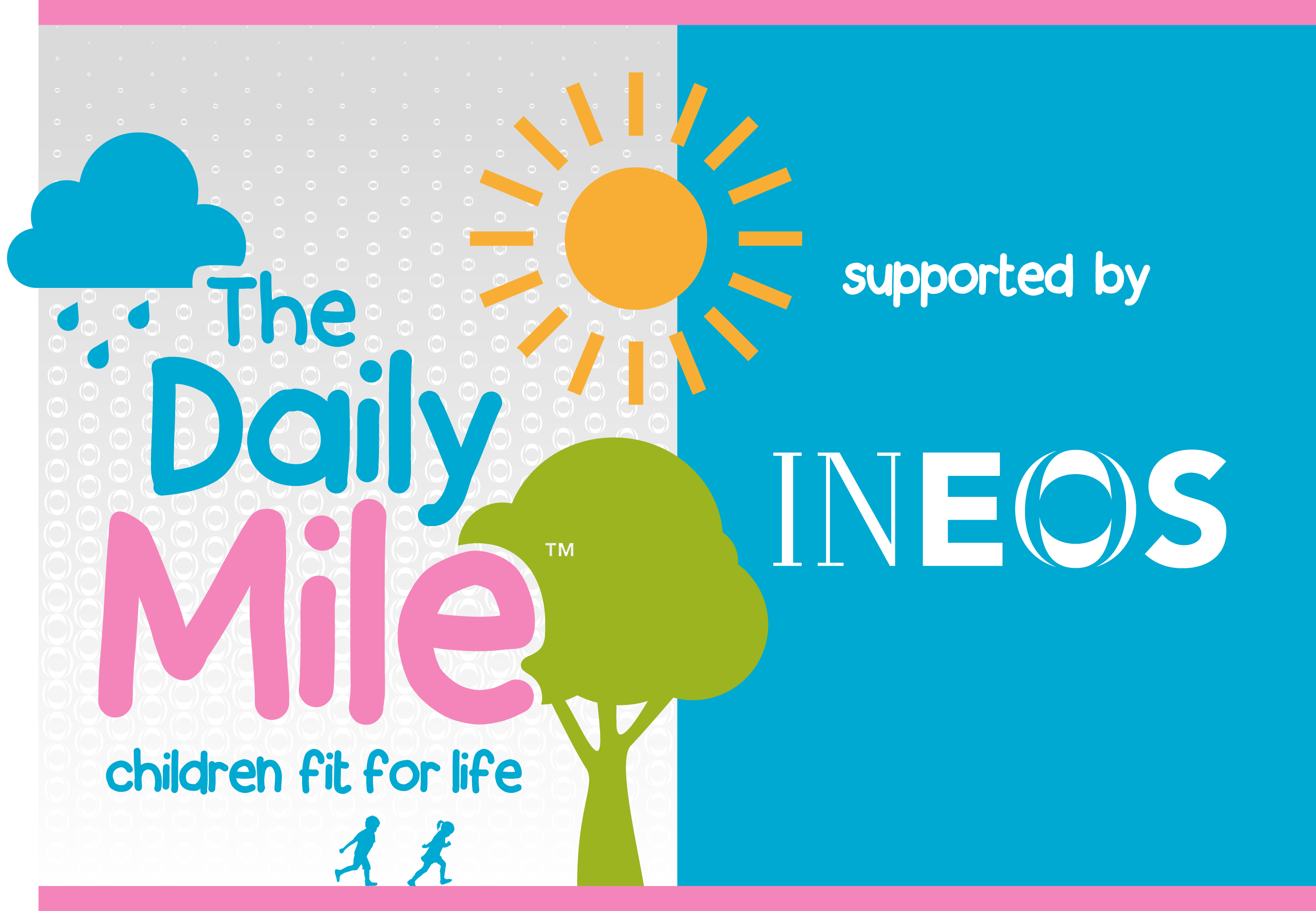The Science Behind The Daily Mile
We all know “exercise is good for you,” and The Daily Mile is no exception. There are a wide variety of health and wellbeing benefits associated with daily physical activity and an emerging body of evidence that supports the positive impact The Daily Mile can have on children’s health.
Read on below
The importance of physical activity
Science has long proven the importance of being physically active in helping our bodies and minds stay healthy. The resource below summarizes the positive impact physical activity has on children’s health, wellbeing and learning – and how The Daily Mile can help children access these benefits every day.
The Benefits of Physical Activity
As The Daily Mile’s reach has grown so has our understanding of the initiative, as researchers across the globe have begun to study the impact it has on children’s health and wellbeing. Please read below to find out more about the impact of The Daily Mile, as cited in published research.
Research Studies on The Daily Mile
The publication of “The Daily Mile: The Impact of an Elementary School-Based Exercise Program on Pulmonary Function” on the Family Medicine website is a significant milestone for The Daily Mile. Authored by Dr. Chip Mainous, the study is one of the first in the USA to show the benefits of the Daily Mile program on children’s pulmonary function. The findings indicate that regular participation in the Daily Mile program can improve children’s lung function, which can lead to better overall health and wellness.
If you have any questions, please contact us.
Benefits of The Daily Mile
- Improves children’s fitness (9% increase)5,9,11,13, leg strength (5% increase)2 and body composition (4% reduction in body fat)9.
- Helps children achieve a third of WHO’s recommended daily physical activity target10.
- Can contribute to improved alertness, mood and verbal memory (7% increase) in children1.
- It's easy to implement and adaptable to suit specific primary school contexts3,5,12.
- Can help children to concentrate better3,4 in class and feel happier1.
- Promotes positive peer-to-peer and teacher-child relationships2,4,5,8.
- Can contribute to other parts of the curriculum, enhancing learning outcomes4.
- Has a positive effect on the school environment12.
- Children report feeling calmer after completing The Daily Mile6.
- Improves children’s attitudes towards physical activity5.
- May help in addressing childhood obesity; have an impact on body mass index, especially in girls; and is a cost-effective intervention, particularly for girls14.
How can The Daily Mile help?
VIEW MORE RESEARCHDutch study shows positive result on children’s aerobic fitness over 12 weeks
International Journal of Environmental Research and Public HealthThe Daily Mile is able to improve cardiorespiratory fitness when practiced three times a week
International Journal of Environmental Research and Public HealthThe Daily Mile makes children happier and is good for their learning
BMC MedicineThe Daily Mile: Whole-school recommendations for implementation and sustainability. A mixed-methods study.
PLOS ONEExploring The Daily Mile and its impact on childhood obesity
International Journal of ObesityThe Daily Mile improves the physical fitness of Italian primary school children and is easy to implement
International Journal of Environmental Research and Public HealthResearching The Daily Mile?
In addition to the research summarized above there are many universities across the globe currently studying The Daily Mile, whose work is yet to be published.
In order to encourage a collaborative approach to research and ensure that we can continue to learn more about the impact of The Daily Mile on children’s health and wellbeing the Foundation coordinates a Research Advisory Group.
If you’re considering studying The Daily Mile, please ensure that your institution is aware of our Core Principles for Research and get in touch with our Research Coordinator.
References for benefits of The Daily Mile
1. Universities of Stirling and Edinburgh: Booth JN, Chesham RA, Brooks NE, Gorely T, Moran CN. A citizen science study of short physical activity breaks at school : improvements in cognition and wellbeing with self-paced activity. BMC Med. 2020;18(62). doi.org/10.1186/s12916-020-01539-4
2. Doncaster & Bassetlaw Teaching Hospitals NHS Foundation Trust: Harris J, Milnes LJ, Mountain G. How ‘The Daily Mile’ works in practice: A process evaluation in a UK primary school. J Child Health Care. 2019. doi:10.1177/1367493519880049
3. Universities of Stirling and Edinburgh: Ryde GC, Booth JN, Brooks NE, Chesham RA, Moran CN, Gorely T. The Daily Mile: What factors are associated with its implementation success? Van Horn L, ed. PLoS One. 2018;13(10) doi.org/10.1371/journal.pone.0204988
4. King’s College London: Hanckel B, Ruta D, Scott G, Peacock JL, Green J. The Daily Mile as a public health intervention: a rapid ethnographic assessment of uptake and implementation in South London, UK. BMC Public Health. 2019;19(1). doi.10.1186/s12889-019-7511-9
5. University of Swansea: Marchant E, Todd C, Stratton G, Brophy S. The Daily Mile: Whole-school recommendations for implementation and sustainability. A mixed-methods study. Visram S, ed. PLoS One. 2020;15(2). doi:10.1371/journal.pone.0228149
6. Mulier Instituut: Slot-Heijs, J.J., Singh AS. The Daily Mile.; 2019 www.mulierinstituut.nl/publicaties/24601/the-daily-mile/
7. Mulier Instituut: Scholten, Vera: Collard D. Evaluatie van The Daily Mile.; 2017. www.kennisbanksportenbewegen.nl/?file=8106&m=1505397804&action=file.download
8. SCPHRP University of Edinburgh: Malden S, Doi L. The Daily Mile: teachers’ perspectives of the barriers and facilitators to the delivery of a school-based physical activity intervention. BMJ Open. 2019;9(3). doi:10.1136/BMJOPEN-2018-027169
9. Universities of Stirling and Edinburgh: Chesham RA, Booth JN, Sweeney EL, et al. The Daily Mile makes primary school children more active, less sedentary and improves their fitness and body composition: A quasi-experimental pilot study. BMC Med. 2018;16. doi:10.1186/s12916-019-1336-3
10. University of Leeds Beckett: Morris JL, Daly-Smith A, Archbold VS, Wilkins EL, McKenna J. The Daily Mile™ initiative: Exploring physical activity and the acute effects on executive function and academic performance in primary school children. Psychol Sport Exerc. 2019;45. doi:10.1016/j.psychsport.2019.101583
11. University of Torino: Brustio PR, Mulasso A, Lupo C, Massasso A, Rainoldi A, Boccia G. The Daily Mile Is Able to Improve Cardiorespiratory Fitness When Practiced Three Times a Week. Int J Environ Res Public Health. 2020;17(6):2095. doi:10.3390/ijerph17062095
12. University of Torino: Brustio PR, Mulasso A, Marasso D, et al. The Daily Mile: 15 minutes running improves the physical fitness of Italian primary school children. Int J Environ Res Public Health. 2019;16(20). doi:10.3390/ijerph16203921
13. Mulier Instituut: de Jonge M, Slot-Heijs JJ, Prins RG, Singh AS. The effect of The Daily Mile on primary school children’s aerobic fitness levels after 12 weeks: A controlled trial. Int J Environ Res Public Health. 2020;17(7). doi:10.3390/ijerph17072198
14. University of Birmingham: Breheny K, Passmore S, Adab P, et al. Effectiveness and cost-effectiveness of The Daily Mile on childhood weight outcomes and wellbeing: a cluster randomised controlled trial. Int J Obes. 2020. doi:10.1038/s41366-019-0511-0




